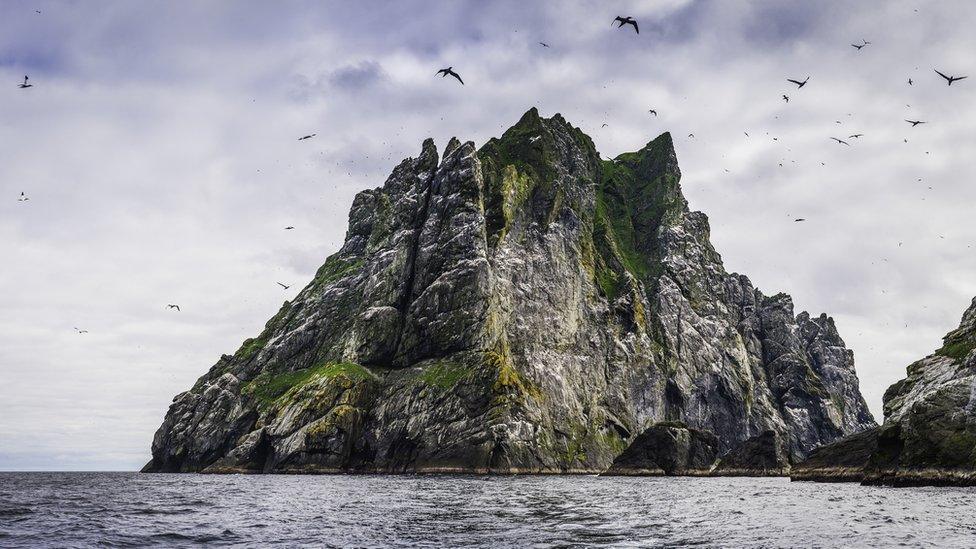Farne Islands to close to visitors amid bird flu fears
- Published

Guillemots, razorbills and kittiwakes return to nest on the Farne Islands every year
The Farne Islands off the Northumberland coast are to close to visitors amid fears about bird flu.
The National Trust said it had "no other choice" after rangers found significant numbers of dead birds.
Although there have been no confirmed cases of avian flu among the islands' colonies, the virus has affected wild birds elsewhere.
Last month bird flu was confirmed in a gannet colony at Bass Rock, the world's largest colony of northern gannets.
There have been more cases across Scotland affecting guillemots, terns and puffins, with dead birds also washing up along the Northumberland and Teesside coasts.
While boat tours will continue to sail around the islands, visitors will not be able to step ashore from Sunday.
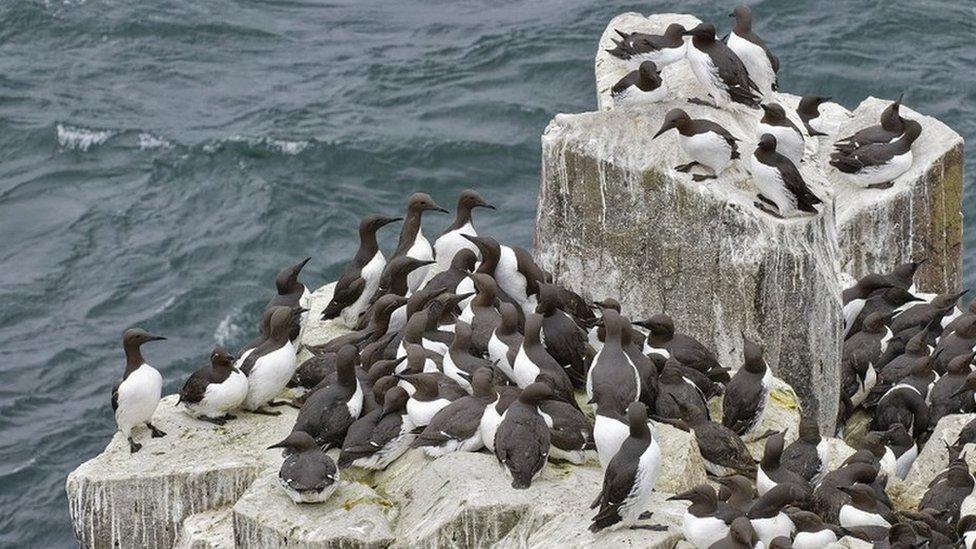
The National Trust said with seabirds nesting in close proximity any spread of the virus could be "devastating"
Farne Islands general manager Simon Lee said: "While we have no confirmed test results from the islands, we are now starting to see the terribly sad and distressing impact of avian influenza on our internationally important and threatened seabirds who make the islands their home.
"Seabirds nesting in dense colonies, most of which are threatened, such as Arctic Terns, are particularly vulnerable now as they have returned to the islands in their thousands to breed, nesting in close proximity to each other."
The Farne Islands are home to approximately 200,000 seabirds including guillemots, kittiwakes, razorbills and shags in addition to Arctic terns and puffins.
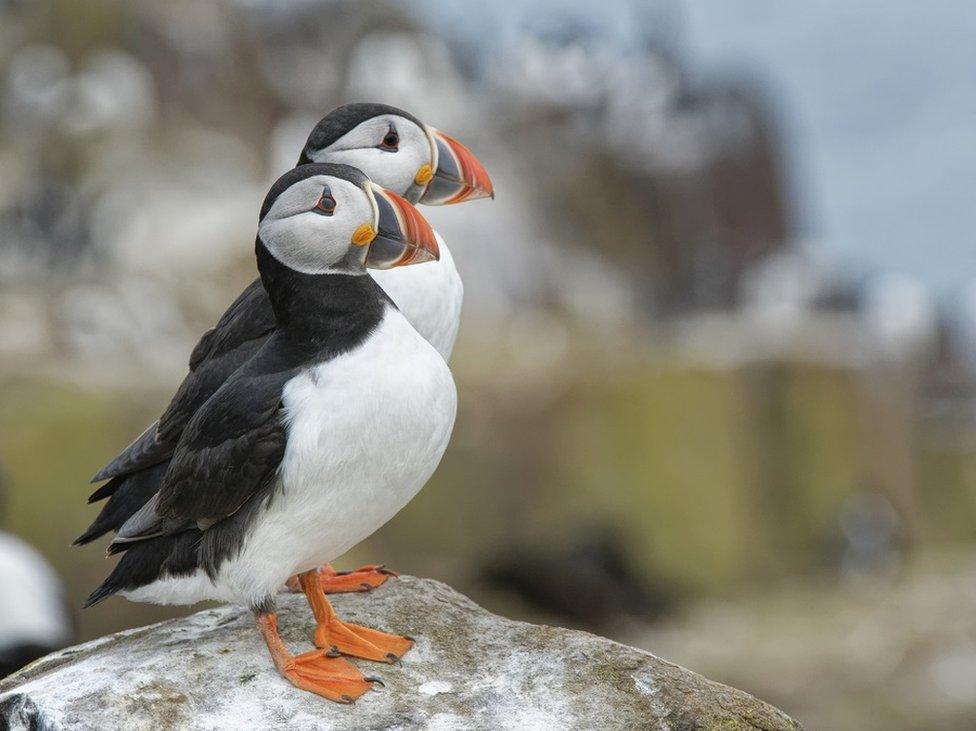
The National Trust estimates about 45,000 people visit the Farne Islands every year
Mr Lee said: "By closing the islands we will reduce the risk of disturbance on the birds, which will hopefully help at least slow down the spread of the disease during this breeding period before they leave the islands in late summer to continue their annual migratory cycle."
The conservation charity has called on the government to do more to protect important seabird colonies.
Ben McCarthy, the charity's head of nature conservation and restoration ecology, said: "We desperately need government to take more effective action, including a National Response Plan that includes practical steps to support our conservation teams, surveillance and monitoring of spread in wild bird populations, research into ways of slowing its spread, and clear biosecurity measures."
Rangers will continue to monitor the birds while the islands are closed to visitors.
The Department for Environment, Food and Rural Affairs (Defra) said it is aware of a "number of wild bird deaths in several locations in England" and that the Animal and Plant Agency is carrying out surveillance.
Defra said anyone who finds dead seabirds should not touch them but report them by calling 0345 9335577.

Follow BBC North East & Cumbria on Twitter, external, Facebook, external and Instagram, external. Send your story ideas to northeastandcumbria@bbc.co.uk, external.
Related topics
- Published16 June 2022
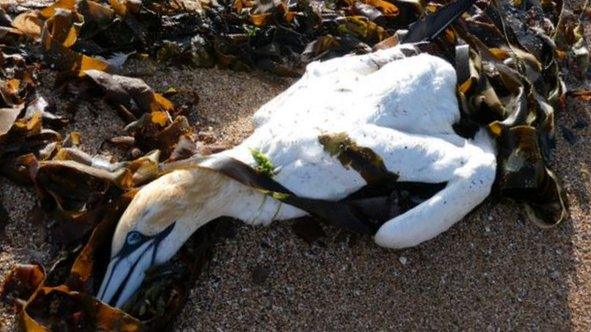
- Published14 June 2022
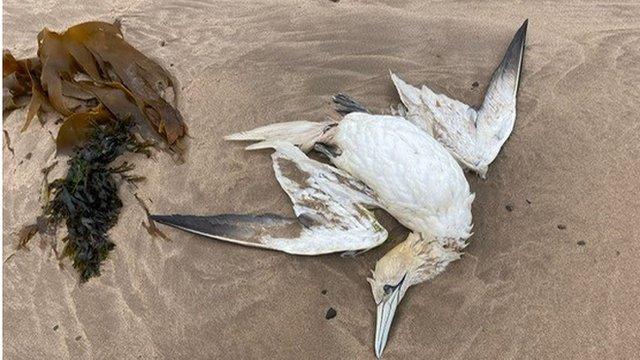
- Published8 June 2022
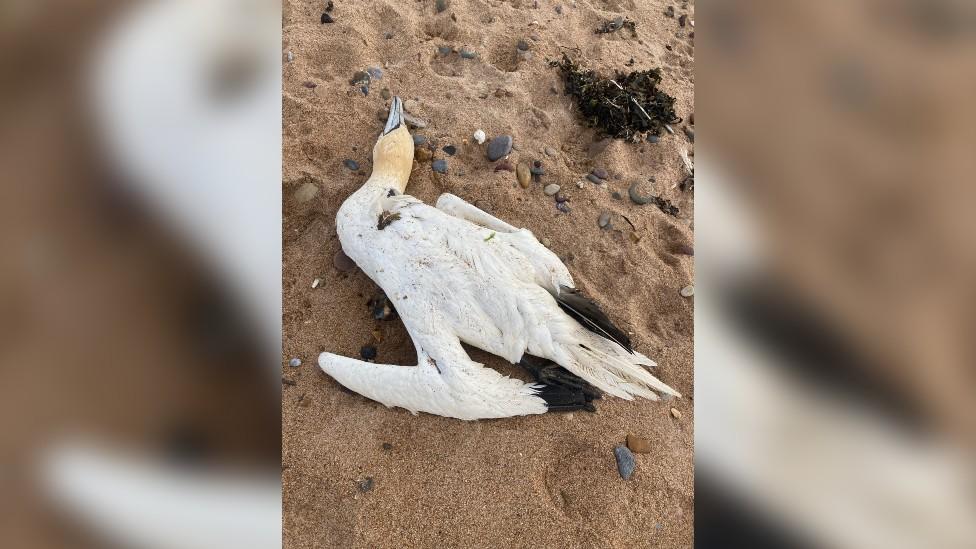
- Published8 June 2022
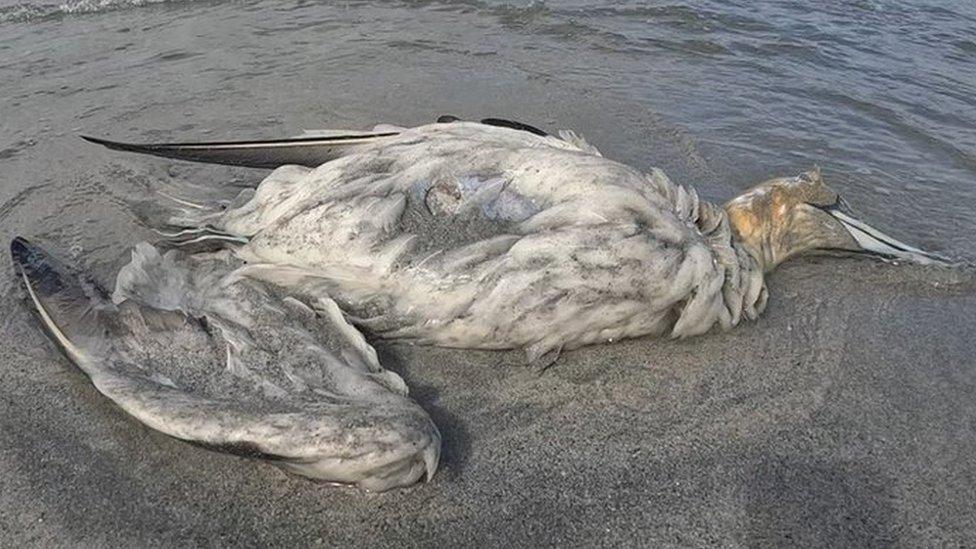
- Published7 June 2022
